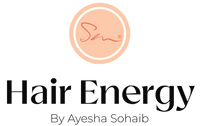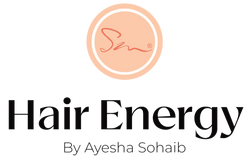Acne, often known as pimples, is a skin ailment that can be bothersome and persistent. Clearer skin can be achieved by controlling and reducing acne using a face cleanser. This post will offer thorough directions and advice on using Acne Face Wash.
Knowing Acne
What Is Involved with Pimples?
Hair follicles are blocked with dead skin cells and oil gives rise to pimples. They can show up as red, swollen pimples, blackheads, or whiteheads. Although it can afflict people of all ages, acne is most common among teenagers.
Causes of Pimples
Pimples are often caused by:
- Excess oil production
- Bacteria
- Hormonal changes
- Certain medications
- Diet
Understanding the causes of your pimples can help in choosing the right face wash and skincare routine.
Choosing the Right Face Wash
Ingredients to Look For
When selecting a face wash for pimples, look for the following ingredients:
Salicylic Acid: Helps to unclog pores and reduce inflammation.
Benzoyl Peroxide: Kills acne-causing bacteria.
Alpha Hydroxy Acids (AHAs): Exfoliate the skin and remove dead skin cells.
Sulfur: Reduces oil production and unclogs pores.
Tea Tree Oil: Has natural antibacterial properties.
Avoiding Harsh Ingredients
Avoid face washes with harsh ingredients that can irritate the skin and exacerbate pimples, such as:
- Alcohol
- Fragrances
- Artificial dyes
Proper Face Washing Technique
Wash Your Hands:
Before touching your face, ensure your hands are clean to avoid transferring bacteria to your skin.
Wet Your Face:
Use lukewarm water to wet your face. Avoid hot water as it can strip the skin of its natural oils.
Apply the Face Wash:
Use a small amount of face wash and apply it to your face. Focus on areas prone to pimples.
Gently Massage:
Use your fingertips to gently massage the face wash into your skin in circular motions. Do this for about 20-30 seconds.
Rinse Thoroughly:
Rinse your face with lukewarm water until all the face wash is removed.
Pat Dry:
Gently pat your face dry with a clean towel. Avoid rubbing as it can irritate the skin.
Follow with a Moisturizer:
Use a non-comedogenic (won't clog pores) moisturizer to keep your skin hydrated.
Frequency of Use
It's generally recommended to wash your face twice a day – once in the morning and once at night. Over-washing can strip the skin of natural oils, leading to increased oil production and potentially more pimples.
Additional Tips for Managing Pimples
Consistent Skincare Routine
Maintaining a consistent skincare routine is crucial for managing pimples. In addition to using a face wash, consider incorporating the following steps:
Toner:
Helps to remove any remaining traces of dirt and oil.
Serum:
Look for serums with acne-fighting ingredients like salicylic acid or niacinamide.
Spot Treatment:
Apply spot treatments to active pimples to reduce inflammation and speed up healing.
Healthy Lifestyle Habits
Adopting healthy lifestyle habits can also contribute to clearer skin:
Balanced Diet:
Eat a diet rich in fruits, vegetables, lean proteins, and whole grains. Limit sugar and dairy intake as they can trigger acne for some people.
Hydration:
Drink plenty of water to keep your skin hydrated from the inside out.
Stress Management:
Practice stress-reducing techniques such as yoga, meditation, or exercise. Stress can trigger hormonal changes that lead to pimples.
Adequate Sleep:
Aim for 7-9 hours of sleep per night. Lack of sleep can affect hormone levels and worsen acne.
Avoid Touching Your Face
Touching your face can transfer dirt and bacteria, leading to more pimples. Try to avoid resting your face on your hands or picking at pimples.
Regularly Clean Pillowcases and Towels
Pillowcases and towels can harbor bacteria and oil, contributing to pimples. Change your pillowcases and towels frequently to keep your skin clean.
Common Mistakes to Avoid
Over-Exfoliating
While exfoliating can help remove dead skin cells, over-exfoliating can irritate the skin and worsen pimples. Limit exfoliation to 1-2 times per week.
Skipping Moisturizer
Even if you have oily skin, skipping moisturizer can lead to dry skin and increased oil production. Use a lightweight, non-comedogenic moisturizer.
Using Too Many Products
Using too many products can irritate the skin and make pimples worse. Stick to a simple, consistent routine and introduce new products one at a time.
When to See a Dermatologist
If over-the-counter face washes and skincare routines are not improving your pimples, consider seeing a dermatologist. They can provide personalized advice and may prescribe stronger treatments such as topical retinoids, oral antibiotics, or hormonal treatments.
The Role of Quality Brands
Choosing quality skincare products from reputable brands can significantly impact the effectiveness of your acne treatment routine. One such brand making waves in the skincare industry is Hairenergy, a well-known cosmetic brand in Pakistan.
Exploring Natural Remedies
While medicated face washes are effective, natural ingredients can also help manage pimples. Some benefits of natural remedies include:
- Fewer side effects
- Gentle on the skin
- Rich in vitamins and antioxidants
Popular Natural Remedies
Here are some popular natural ingredients that can be incorporated into your skincare routine:
Honey:
Has antibacterial and anti-inflammatory properties. Use it as a mask by applying a thin layer to the face and leaving it on for 10-15 minutes before rinsing.
Aloe Vera:
Known for its soothing and healing properties. Apply pure aloe vera gel directly to pimples.
Green Tea:
Contains antioxidants that can reduce inflammation. Brew green tea, let it cool, and use a cotton ball to apply it to your face.
Apple Cider Vinegar:
Has antibacterial properties. Dilute it with water (1 part vinegar to 3 parts water) and use it as a toner.
How to Use Natural Remedies
Natural remedies can be used in conjunction with your regular skincare routine. For instance, you can apply aloe vera gel after washing your face or use a honey mask once a week.
Understanding the Role of Diet
Research suggests that certain dietary choices can influence acne development. Understanding this connection can help you make better food choices for clearer skin.
Certain foods may trigger acne or make it worse. Consider reducing your intake of:
Sugar and High-Glycemic Foods:
Foods that spike blood sugar levels can increase insulin, which may lead to acne.
Dairy Products:
Some studies suggest a link between dairy consumption and acne.
Fast Food:
High in unhealthy fats and refined carbohydrates.
Foods That Promote Clear Skin
Incorporate these foods into your diet for healthier skin:
Fruits and Vegetables:
Rich in vitamins and antioxidants that support skin health.
Omega-3 Fatty Acids:
Found in fish, flaxseeds, and walnuts, they have anti-inflammatory properties.
Probiotics:
Found in yogurt, kefir, and fermented foods, they promote gut health, which can improve skin conditions.
Common Concerns
Understanding the facts about acne can help you make informed decisions about your skincare:
Acne is Caused by Poor Hygiene:
While cleanliness is important, acne is primarily caused by internal factors like hormones and genetics.
Sun Exposure Clears Up Pimples:
While the sun can temporarily dry out pimples, it can also cause skin damage and increase oil production.
Popping Pimples Makes Them Go Away Faster:
Popping pimples can lead to scarring and further inflammation.
Fact-Checking for Better Skin Care
Rely on reputable sources and consult dermatologists for accurate information about acne and skincare. Avoid following unverified advice that can harm your skin.
Effective face washing can play a major role in controlling and lessening pimples. Clearer skin can be encouraged by using the right face cleanser, washing correctly, and forming good lifestyle habits. Always remember to follow your skincare regimen with patience and consistency, and if necessary, seek professional help.












